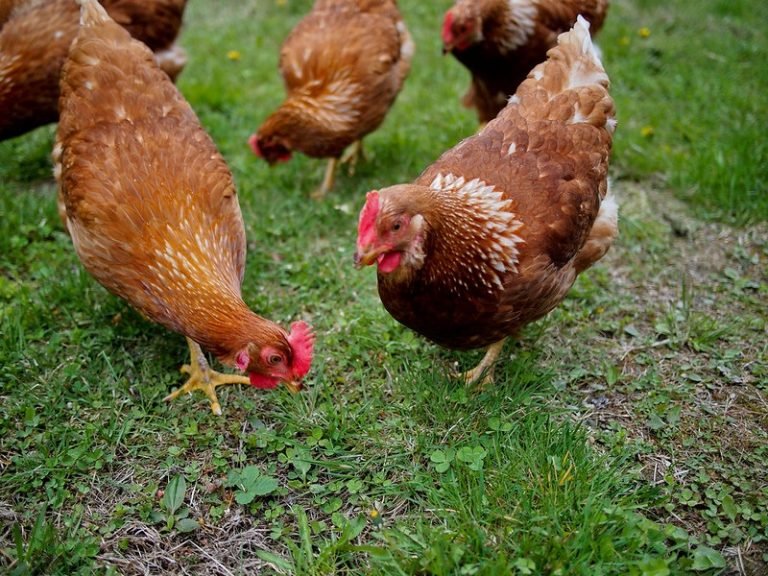
Raising backyard chickens can seem overwhelming at first, especially if you’re just starting. There’s a lot to learn, from choosing the right breed to understanding their care and housing needs. But don’t worry! It’s easier than it sounds. This guide will walk you through everything you need to know, step by step, to get you clucking along smoothly. So, grab a seat, and let’s dive into this cluck-tastic journey!
Why Raise Backyard Chickens?
You might be wondering, “Why should I raise backyard chickens?” Well, other than the obvious benefit of fresh eggs, there are several compelling reasons.
First off, chickens can help you reduce kitchen waste. They love to eat scraps like vegetable peels and old bread, turning your leftovers into delicious eggs. It’s like having a little eco-friendly recycling team in your yard! Plus, chickens produce nutrient-rich manure, which is fantastic for your garden. It’s a win-win situation!
Another reason to consider raising chickens is their delightful personalities. Chickens are surprisingly social creatures. They have different breeds with various temperaments, from the friendly and cuddly to the more independent ones. Spending time with them can bring joy and a sense of connection to nature, transforming your backyard into a lively hub of activity.
Choosing the Right Breed
Now that you’re excited about the benefits, let’s talk about choosing the right chicken breed for your backyard. There are dozens of breeds out there, each with unique personalities and egg-laying capabilities.
For beginners, breeds like the Rhode Island Red, Leghorn, and Plymouth Rock are great options. They’re hardy, good layers, and generally friendly. Here’s a quick list of some popular breeds:
- Rhode Island Red: Great egg producers and very adaptable.
- Leghorn: Known for high egg production and active personalities.
- Plymouth Rock: Friendly and good layers with beautiful striped feathers.
When choosing a breed, consider factors like climate, space, and what you want from your chickens. If you want pure egg production, focus on layers. If you’re interested in companionship, look for more affectionate breeds.
Building a Chicken Coop
Let’s get into the fun part—building your chicken coop. Think of the coop as a cozy home for your feathery friends. A well-designed coop will keep them safe from predators and provide a comfortable space for them to live.
Start by selecting a location. Choose a spot that offers shelter from wind and rain, along with plenty of sunlight. The size of your coop will depend on how many chickens you plan to raise. A good rule of thumb is to allow about 4 square feet per chicken inside the coop and 10 square feet per chicken in the outdoor run.
Here’s a basic checklist for building your coop:
- Ventilation: Ensure there are windows or vents to let in fresh air.
- Insulation: Keep your chickens warm in winter with proper insulation.
- Predator-proofing: Use strong materials and secure doors.
Don’t forget to add nesting boxes and perches! Nesting boxes should be around 12×12 inches, and chickens love to roost on perches.
Feeding Your Chickens
Feeding your chickens might sound straightforward, but there’s a bit more involved than just tossing out scraps. Chickens need a balanced diet to stay healthy and produce eggs efficiently.
Start with a high-quality commercial chicken feed that’s specially formulated for the age and type of your chickens. You can find starter feed for chicks and layer feed for older hens. It usually contains essential nutrients like protein, vitamins, and minerals.
You can also supplement their diet with:
- Kitchen scraps: Vegetables, grains, and fruits are great treats.
- Grit: This helps chickens digest their food properly.
- Calcium: Provide oyster shell for stronger egg shells.
Keep fresh water available at all times, as hydration is crucial for their health. It’s like giving them a refreshing drink after a fun day of scratching around!
Health and Care for Your Chickens
Taking care of your chickens goes beyond feeding and watering them. Regular health checks are essential for preventing diseases and keeping them happy.
Start with daily checks for signs of illness, such as lethargy, unusual droppings, or decreased egg production. You’ll want to clean the coop regularly to avoid harmful bacteria.
Another critical aspect is vaccinations. Talk to your vet about vaccinations suitable for your area. Common vaccines can protect your flock from various diseases.
Finally, be mindful of common pests like mites and lice. If you notice excessive scratching or feather loss, it might be time for a thorough pest inspection and treatment.
Collecting Eggs
Now, the moment you’ve been waiting for—collecting eggs! This can be one of the most rewarding parts of raising chickens.
Hens typically start laying eggs around 6 months old, depending on the breed. When it’s time to collect, do it at least once a day to keep eggs fresh and discourage chickens from pecking at them.
Check each nesting box for eggs, and handle them gently. If you find a soft-shelled egg, it could indicate your hen needs more calcium in her diet. And remember, the excitement of receiving fresh, warm eggs is like finding treasures in your own backyard!
Common Challenges and Solutions
Like any venture, raising backyard chickens comes with its own set of challenges. Don’t worry, though; with some preparation, you can tackle them easily.
One common issue is predators. Animals like raccoons, foxes, and hawks can pose a threat to your flock. Ensure your coop is secure and consider additional fencing around the run.
Another challenge is keeping hens from getting bored. Chickens can become restless and may start picking on each other if they don’t have enough stimulation. You can add toys, perches, and even dust baths to keep them engaged.
Lastly, you might face egg production fluctuations due to season changes or stress. If you see a dip in egg numbers, check for environmental factors. Sometimes all they need is a little TLC!
Raising backyard chickens can be an incredibly rewarding experience. From enjoying fresh eggs to bonding with your feathery friends, it gives you a taste of self-sufficiency and connection to nature.
While there’s a bit of work involved—like building a coop, feeding, and caring for them—the joy they bring is worth every effort. Start with the basics, learn as you go, and soon enough you’ll be running your little chicken enterprise like a pro. So what are you waiting for? Get ready to embrace the charm of backyard chickens and all the delightful clucks that come with them!

